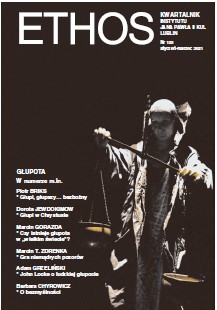DOŚWIADCZENIE MORALNE WEDŁUG JACQUES’A MARITAINA
JACQUES MARITAIN’S CONCEPT OF MORAL EXPERIENCE
Author(s): Anna KrajewskaSubject(s): Metaphysics, Ethics / Practical Philosophy, Contemporary Philosophy, Ontology
Published by: Katolicki Uniwersytet Lubelski Jana Pawła II - Instytut Jana Pawła II, Wydział Filozofii
Keywords: moral experience; moral value; moral duty; ultimate purpose; unconscious reason; inclinational knowledge; metaphysics;
Summary/Abstract: The article discusses Jacques Maritain’s concept of moral experience. The French philosopher claims that this kind of experience is manifested mainly in preconscious, inclinational knowledge of moral values. The category of inclination is related to that of the purpose of human nature. Every choice of moral goodness a human being makes implies a choice of the ultimate purpose, i.e., God. Maritain believes that the purpose in question reveals itself in an immediate lived experience of a human being. A moral experience includes also an experience of duty. According to Maritain, the key role in this kind of experience is played by the sense of moral obligation which links an ontological fact (duty as a form of reason) to the sphere of consciousness. In his philosophical and ethical analyses, Maritain intends to show a necessary connection between experiential and metaphysical perspectives involved in the constitution of ethics. However, Maritain’s concept of moral experience can give rise to objections. In particular, the categories of unconscious reason and unconscious cognition conceived as natural sources of the knowledge of moral values invite criticism, since cognition, in its essence, is a conscious process of understanding.
Journal: Ethos. Kwartalnik Instytutu Jana Pawła II KUL
- Issue Year: 34/2021
- Issue No: 1
- Page Range: 277-297
- Page Count: 21
- Language: Polish
- Content File-PDF

